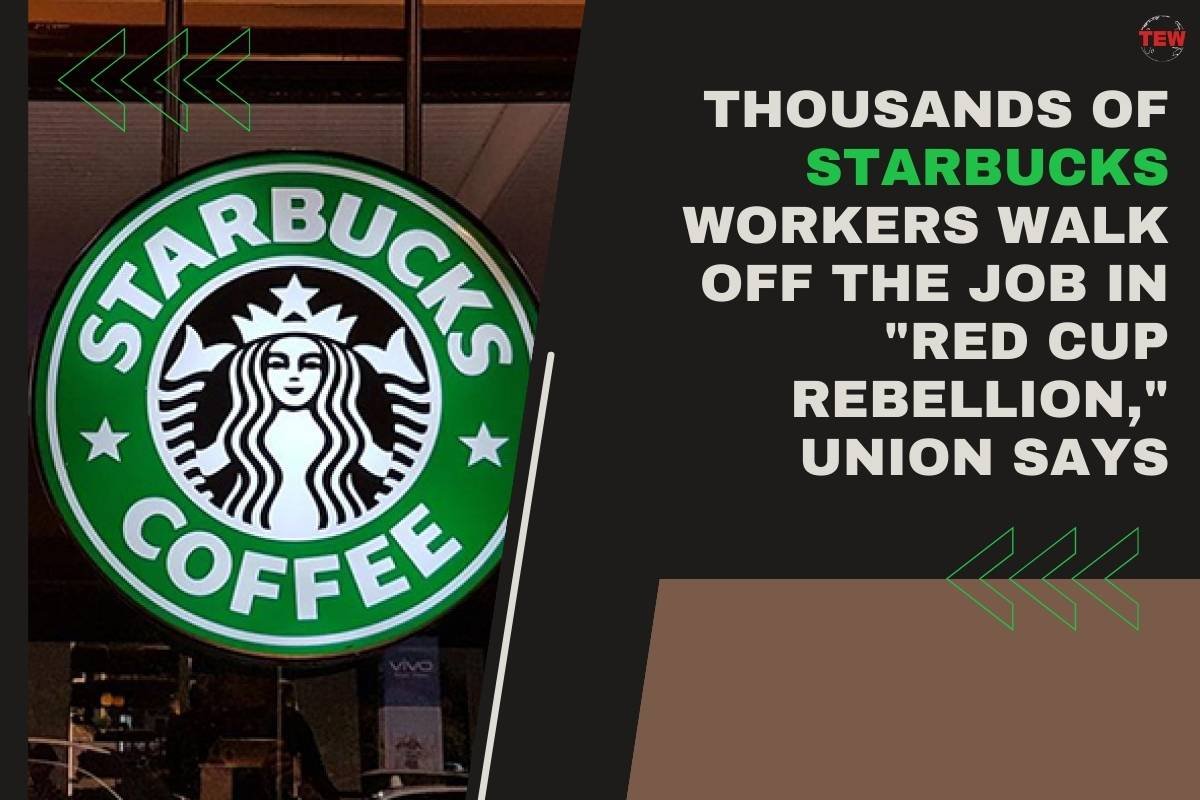On “Red Cup Day,” an annual Starbucks promotion where the coffee chain distributes reusable cups to customers ordering holiday drinks, thousands of unionized Starbucks employees staged a walkout, marking the largest work stoppage in the company’s history, according to the protesting union, Starbucks Workers United. The move aimed to spotlight persistent grievances related to staffing, scheduling, and other workplace issues.
Juniper Schweitzer, a Starbucks employee of 16 years, expressed love for the company and its ideals but asserted that it is falling short of its promises. Outside her Chicago store, Schweitzer participated in picketing on Thursday.
Nearly 10,000 stores were open for Red Cup Day
Although the labor group has organized approximately 360 Starbucks stores, constituting a small fraction of the company’s 9,000+ U.S. locations, Starbucks sought to downplay the impact of the protest. A Starbucks spokesperson mentioned that nearly 10,000 stores were open for Red Cup Day, with only a few dozen affected by strikes, and more than half of those still serving customers.
The demonstration occurs amid indications that the momentum behind Starbucks employee efforts to unionize has waned since three cafes in upstate New York unionized in 2021. Starbucks Workers United has accused the company of employing delaying tactics to avoid reaching a labor contract, while Starbucks executives blame the union for the impasse.
Edwin Palmasolis, a Starbucks employee for over two years, joined the picket line in front of his New York store. Although his store voted to unionize last year, negotiations with Starbucks have yet to commence. Palmasolis believes that a contract would contribute to enhancing working conditions at his busy Manhattan store, where dealing with company retaliation has been an ongoing challenge.
In New York, nonunion Starbucks workers are filing new complaints against the company, alleging violations of worker protection laws. These complaints, involving over 50 stores, claim that Starbucks is violating New York City’s Fair Workweek Law, enacted in 2017. The law mandates employers to provide fast-food workers with schedules at least two weeks in advance or pay a bonus for shifts.
Emphasizing the strain of managing orders
Starbucks refutes the allegations, asserting that it is not violating the law and has invested significant resources to ensure compliance with New York City’s Fair Workweek and Just Cause Laws.
Thursday’s protests included workers at six unionized locations in Pittsburgh, Pennsylvania, leading to temporary closures and frustrated customers. Workers argue that Starbucks’ refusal to negotiate on promotion days results in longer wait times for customers since the company won’t bring in additional staff. As part of their protest, employees are calling for Starbucks to disable mobile ordering on future promotion days.
Casper Borowitz, an employee at a Starbucks on the University of Pittsburgh campus, highlighted the challenges faced during high-volume days: “At my store, we’re the fourth busiest store on the entire East Coast and we saw upwards of 500 drinks an hour, with six people on the floor. That’s simply not realistic.” Another Starbucks barista in Maryland, Sam Petty, echoed these concerns, emphasizing the strain of managing orders for numerous customers during peak hours.





